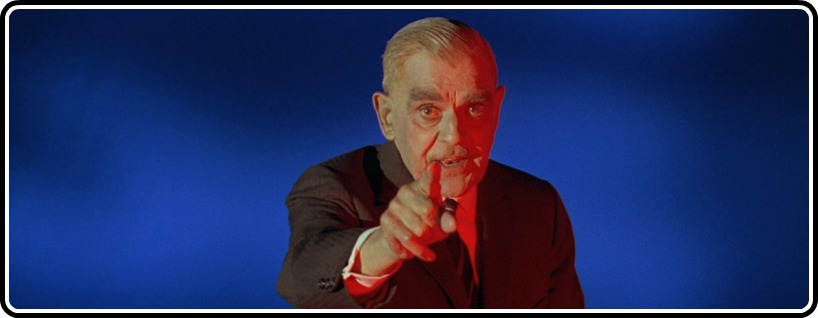Horror anthologies come a relative dime a dozen. Hell, in the last 12(ish) months, we’ve seen things like VHS, The ABCs Of Death and even a sequel for the former. The genre of horror seems to be a perfect fit for this type of episodic structure, and throughout the genre’s history we have seen attempts at crafting the anthology film both succeed, and absolutely fail.
One of the more intriguing anthologies that we’ve seen crop up out of this gang of films is Mario Bava’s trio of shorts entitled Black Sabbath. While often being mentioned (rightly) as “minor”-Bava with regards to his canon as a whole, this film is both an oddly limp horror feature and an interesting mood piece drawing inspirations from the likes of Ivan Chekhov and Aleksel Konstantinovich Tolstoy.
First we have “The Telephone.” Following a rather terse and bland opening monologue from one Boris Karloff (dubbed in this cut, the Italian version), we are introduced to the absolutely gorgeous Rosy, a Parisian call-girl who, after returning from a night out, becomes accosted by malevolent phone calls. A rather standard horror premise continues, as we are introduced to a second party, her lesbian lover and a man seeking revenge after escaping prison.
Oddly the most subdued of the three shorts, it’s also possibly the film’s most intriguing. Despite being utterly simplistic in its conceit and execution, there is something to be said for the beauty of the frame that Bava crafts here, and while the horror may be slight, the entire sort is just good, down home, simplistic horror filmmaking. Performances are campy and energetic, and it is an excitingly small diversion from what Bava’s over the top Gothic aesthetic is best known for.
Next comes the second short, and the lengthiest one at that. Based on A.K. Tolstoy’s The Family Of The Vourdalak, “The Wurdalak” tells the story of a nobleman in 19th Century Russia who, after discovering a dead body with a knife in its heart, comes across a cottage and the story of the Wurdalak Ali Beg. A Wurdalak is as close to a vampire as one could possibly get, and this one has become the ire of the patriarch of the cottage our hero now finds himself within, as he has left to take down the beast. However, when he returns, things appear to have gone wrong, thus sending our narrative into the realm of brooding, Gothic terror.
Possibly one of the most definitive things that Bava ever helmed, this short holds within it just about everything the auteur ever became known for. Neon cinematography, hazy sets with Gothic architecture and costume design and enough gore to send any blood nut into a daze, “The Wurdalak” is also brazenly slight and holds within its brains nothing more than the original story from which it cribs. It’s a tad over long, but it is also utterly gorgeous and features a scenery chewing performance from Karloff as the legend neared the end of his life. It’s not a classic like a Baron Blood or a Black Sunday, but as far as Bava’s canon goes, it’s as good an entry point as you could find.
Finally, “The Drop Of Water.” After our lead, Nurse Helen Chester, steals a ring off of a dead corpse, her life goes into a spiral, finding her becoming accosted by the very woman who she had just robbed. A simplistic conceit that makes this and “The Telephone” fun little bookends, the main difference here is that there is actually a theme at play. Yes, the idea of karmic revenge isn’t all that new within the world of horror, but here it’s done in the guise of a really taut short film, that is both beautifully stylized and relatively entertaining. It’s the quietest of all the three shorts, which is a welcome way to end the picture, and the film’s final coda/reveal is really fun and while it is campy, it turns Black Sabbath into something that veers away from horror classic and closer to that type of cartoonish horror anthology that you’d watch Halloween night.
And while, as with most of these Bava releases from Kino Lorber, they lack the supplements of their Arrow Films brethren, this Blu-ray is surely best suited as nothing more than a Halloween night curio. The performances are over the top and silly, and with relatively simplistic premises backing them, the film rides its aesthetic almost to a fault. Thankfully, Bava is such an adept artist that this is something just slightly better than that second or third tier Bava film. A solid entry for Bava newcomers, this may not be his best, but it’s definitely a film worth noting, especially in this new HD restoration.



